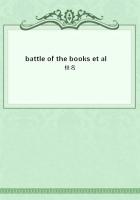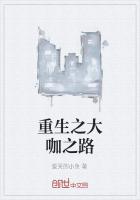SOCRATES: And there is still another case which will also perhaps appear strange to you, if you will consider it? (The reading is here uncertain.)ALCIBIADES: What is that, Socrates?
SOCRATES: It may be, in short, that the possession of all the sciences, if unaccompanied by the knowledge of the best, will more often than not injure the possessor. Consider the matter thus:--Must we not, when we intend either to do or say anything, suppose that we know or ought to know that which we propose so confidently to do or say?
ALCIBIADES: Yes, in my opinion.
SOCRATES: We may take the orators for an example, who from time to time advise us about war and peace, or the building of walls and the construction of harbours, whether they understand the business in hand, or only think that they do. Whatever the city, in a word, does to another city, or in the management of her own affairs, all happens by the counsel of the orators.
ALCIBIADES: True.
SOCRATES: But now see what follows, if I can (make it clear to you).
(Some words appear to have dropped out here.) You would distinguish the wise from the foolish?
ALCIBIADES: Yes.
SOCRATES: The many are foolish, the few wise?
ALCIBIADES: Certainly.
SOCRATES: And you use both the terms, 'wise' and 'foolish,' in reference to something?
ALCIBIADES: I do.
SOCRATES: Would you call a person wise who can give advice, but does not know whether or when it is better to carry out the advice?
ALCIBIADES: Decidedly not.
SOCRATES: Nor again, I suppose, a person who knows the art of war, but does not know whether it is better to go to war or for how long?
ALCIBIADES: No.
SOCRATES: Nor, once more, a person who knows how to kill another or to take away his property or to drive him from his native land, but not when it is better to do so or for whom it is better?
ALCIBIADES: Certainly not.
SOCRATES: But he who understands anything of the kind and has at the same time the knowledge of the best course of action:--and the best and the useful are surely the same?--ALCIBIADES: Yes.
SOCRATES:--Such an one, I say, we should call wise and a useful adviser both of himself and of the city. What do you think?
ALCIBIADES: I agree.
SOCRATES: And if any one knows how to ride or to shoot with the bow or to box or to wrestle, or to engage in any other sort of contest or to do anything whatever which is in the nature of an art,--what do you call him who knows what is best according to that art? Do you not speak of one who knows what is best in riding as a good rider?
ALCIBIADES: Yes.
SOCRATES: And in a similar way you speak of a good boxer or a good flute-player or a good performer in any other art?
ALCIBIADES: True.
SOCRATES: But is it necessary that the man who is clever in any of these arts should be wise also in general? Or is there a difference between the clever artist and the wise man?
ALCIBIADES: All the difference in the world.
SOCRATES: And what sort of a state do you think that would be which was composed of good archers and flute-players and athletes and masters in other arts, and besides them of those others about whom we spoke, who knew how to go to war and how to kill, as well as of orators puffed up with political pride, but in which not one of them all had this knowledge of the best, and there was no one who could tell when it was better to apply any of these arts or in regard to whom?
ALCIBIADES: I should call such a state bad, Socrates.
SOCRATES: You certainly would when you saw each of them rivalling the other and esteeming that of the greatest importance in the state,'Wherein he himself most excelled.' (Euripides, Antiope.)--I mean that which was best in any art, while he was entirely ignorant of what was best for himself and for the state, because, as I think, he trusts to opinion which is devoid of intelligence. In such a case should we not be right if we said that the state would be full of anarchy and lawlessness?
ALCIBIADES: Decidedly.
SOCRATES: But ought we not then, think you, either to fancy that we know or really to know, what we confidently propose to do or say?
ALCIBIADES: Yes.
SOCRATES: And if a person does that which he knows or supposes that he knows, and the result is beneficial, he will act advantageously both for himself and for the state?
ALCIBIADES: True.
SOCRATES: And if he do the contrary, both he and the state will suffer?
ALCIBIADES: Yes.
SOCRATES: Well, and are you of the same mind, as before?
ALCIBIADES: I am.
SOCRATES: But were you not saying that you would call the many unwise and the few wise?
ALCIBIADES: I was.
SOCRATES: And have we not come back to our old assertion that the many fail to obtain the best because they trust to opinion which is devoid of intelligence?
ALCIBIADES: That is the case.
SOCRATES: It is good, then, for the many, if they particularly desire to do that which they know or suppose that they know, neither to know nor to suppose that they know, in cases where if they carry out their ideas in action they will be losers rather than gainers?
ALCIBIADES: What you say is very true.
SOCRATES: Do you not see that I was really speaking the truth when Iaffirmed that the possession of any other kind of knowledge was more likely to injure than to benefit the possessor, unless he had also the knowledge of the best?
ALCIBIADES: I do now, if I did not before, Socrates.

